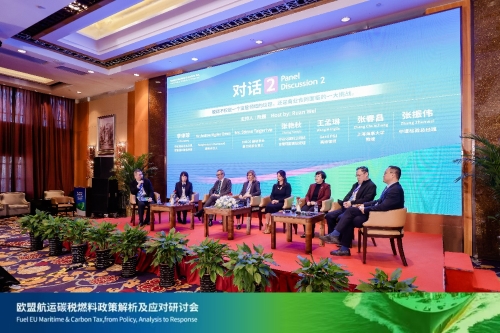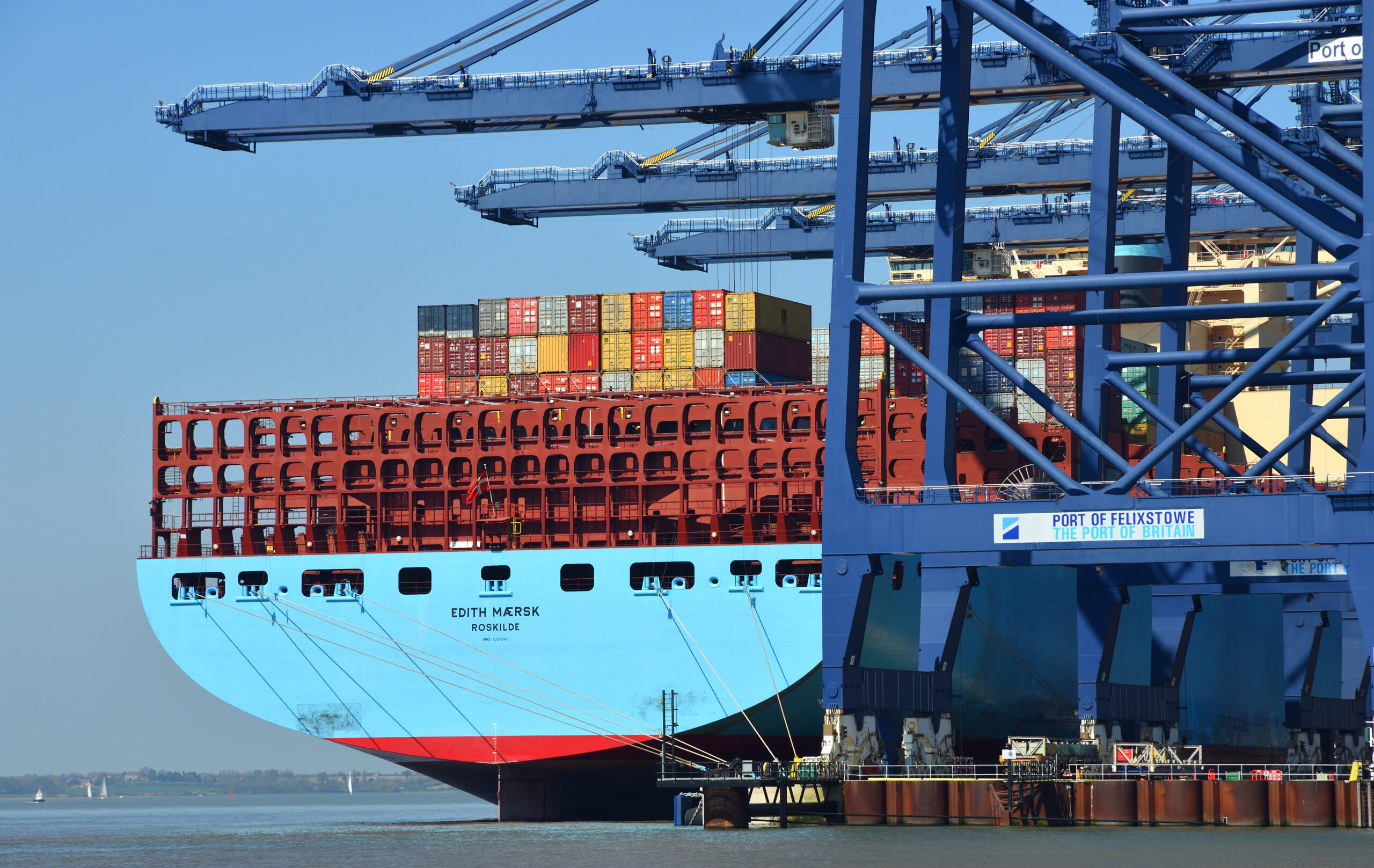Chinese shipping executives and policymakers gathered in Shanghai on 10 January 2025 to discuss and respond to the European Union’s greenhouse gas (GHG) emissions regulations. The seminar, co-convened by COSCO Shipping’s journal, Maritime China, The Baltic and International Marine Council (BIMCO), and Shanghai Maritime University (SMU), attracted over 240 policymakers, industry representatives, academics, and maritime sector leaders.
The event, “FuelEU Maritime & Carbon Tax: From Policy Analysis to Response,” explored China’s strategies for navigating the challenges posed by the European Union’s Emissions Trading Scheme (EU ETS) and the new FuelEU Maritime regulations, which came into force on 1 January 2025.
Speaking at the seminar, Zhang Yong, Deputy General Manager of COSCO Shipping Group, emphasised the need to align investment, finance, technology and policy incentives to foster a low-carbon maritime economy. He outlined a four-pronged approach: responsible investment in low-carbon solutions; transformation finance that protects high-carbon stocks (HCS); R&D into sustainable technology; and incentive compatibility to drive collaboration and streamline global decarbonisation efforts.
Mei Dewen, Vice Chair of Beijing Green Exchange, addressed the pivotal role that will be played by carbon markets in driving evolution in maritime decarbonisation. China’s ongoing efforts, he noted, in developing a dynamic carbon market with international influence align with its strategic goal of being a global leader in maritime emissions reduction.

Li Zhipeng, Vice President of Shanghai Maritime University, described the EU ETS and FuelEU Maritime regulations as both a challenge and an opportunity for China’s shipbuilding, new energy and port industries. With the International Maritime Organisation (IMO) targeting net-zero carbon emissions by 2050, the seminar reinforced the importance of timely, equitable, and practical strategies for maritime decarbonisation.
The seminar identified collaborative partnerships as critical to decarbonising the global maritime sector, citing the recently signed Memorandum of Understanding (MoU) between China Marine Bunker (PetroChina) Co. (also known as Chimbusco) and Methanex, the Canadian methanol supplier, to advance the development of green methanol adoption as a low-carbon marine fuel.
During the seminar, panellists discussed mitigation strategies for the dual challenges of regulatory and commercial pressure, as well as the vital industry requirements for training, innovation and international consensus to speed up the progress of decarbonisation projects. In responding to EU carbon regulations, speakers conveyed China’s readiness to spearhead global initiatives in low-carbon maritime transformation and set new benchmarks for emissions reduction through the collaborative pilot projects that are already underway.



